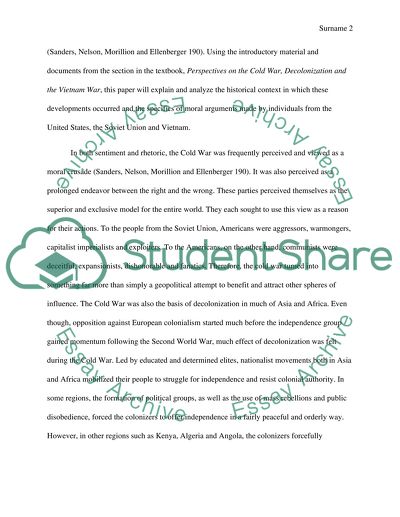Cite this document
(“Perspectives on the Cold War, Decolonization, and the Vietnam War Essay”, n.d.)
Retrieved from https://studentshare.org/history/1479328-perspectives-on-the-cold-war-decolonization-and
Retrieved from https://studentshare.org/history/1479328-perspectives-on-the-cold-war-decolonization-and
(Perspectives on the Cold War, Decolonization, and the Vietnam War Essay)
https://studentshare.org/history/1479328-perspectives-on-the-cold-war-decolonization-and.
https://studentshare.org/history/1479328-perspectives-on-the-cold-war-decolonization-and.
“Perspectives on the Cold War, Decolonization, and the Vietnam War Essay”, n.d. https://studentshare.org/history/1479328-perspectives-on-the-cold-war-decolonization-and.


